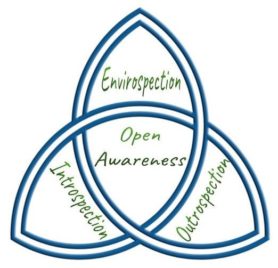 The fear of being left alone, uncared for or unloved is one of the deepest fears that every human experiences. This is the fear of abandonment and it underpins many other kinds of fears. It results in attention seeking behaviour in childhood and co-dependence later in life, often escalating into relationship and social disorders as well as self destructive behaviours.
The fear of being left alone, uncared for or unloved is one of the deepest fears that every human experiences. This is the fear of abandonment and it underpins many other kinds of fears. It results in attention seeking behaviour in childhood and co-dependence later in life, often escalating into relationship and social disorders as well as self destructive behaviours.
The good news is, as Tom Robbins reminds us – “it’s never too late to have a happy childhood” and therefore greater personal freedom as an adult. This means that regardless of your past or present fears and their effect on your current beliefs and personality, healing, transformation and empowerment can occur, which is what this article will reveal.
A common cause of the fear of abandonment is when babies and children are left to cry themselves to sleep. Just one occurrence of this popular method of teaching our young to go to sleep by themselves is enough to initiate the fear of abandonment, as agreed by early development professionals, including family physician Dr Gabor Maté, who states that:
People cannot consciously recall what they “learned” in the first year of life, because the brain structures that store narrative memory are not yet developed. But neuropsychological research has established that human beings have a far more powerful memory system imprinted in their nervous systems called intrinsic memory. Intrinsic memory encodes the emotional aspects of early experience, mostly in the prefrontal lobe of the brain. These emotional memories may last a lifetime. Without any recall of the events that originally encoded them, they serve as a template for how we perceive the world and how we react to later occurrences.
You can read Dr Maté’s article “Why I no longer believe babies should cry themselves to sleep”, here.
Including bedtime trauma, the root causes of the fear of abandonment might stem from earlier events, as suggested by the following early development professionals:
Obstetrician, Dr. Michael Odent, suggests that the quality of life in the womb, during birth and post-birth lays the foundation for a loving and altruistic relationship with fellow humans, or conversely for a mistrusting and aggressive attitude toward society. Daniel Siegel, clinical professor of psychiatry confirms his in book ‘The Mindful Brain’ that our earliest experiences shape the narrative of our lives. Dr. Marcy Axness, an early development specialist states in her book ‘Parenting for peace’ that the baby’s experience during birth significantly influences that child’s psychological development. In his book ‘Psychology of the future’, psychiatrist Stan Grof makes it clear that the way in which baby’s are treated around the time of birth sets the course for that individual’s emotional and social development throughout life. The field of Perinatal Psychology has verified that the potential for a fear of abandonment to manifest is associated with the baby being removed from their mother within the first couple hours of birth.
Clearly the fear of abandonment is something that affects all of us, and the severity of these affects differs from one individual to the next. In any case, the fear of abandonment is the unconscious emotion responsible for many of our anti-social and destructive behaviours, as well as most relationship issues.
Back to the good news: Overcoming the fear of abandonment is not something that needs to take years of therapy. In fact, once addressed constructively at the optimal level – where the fear resides in unconscious awareness of the body/mind, this deep-seated fear can be completely released. Healing modalities that facilitate such processes are Hypnotherapy and Authentic Self Empowerment. Another resource that is specifically designed to deal with the fear of abandonment is the Luca’s Island recording.
Imagining a life governed by fear is not difficult, as we see it around us and in the news each day!
Now imagine a life that is free of this fear…
Freedom!
Written by Jevon Dangeli – NLP Trainer & Coach, MSc Transpersonal Psychology
